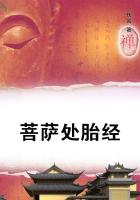I turned from the life of our circle,acknowledging that ours is not life but a simulation of life--that the conditions of superfluity in which we live deprive us of the possibility of understanding life,and that in order to understand life I must understand not an exceptional life such as our who are parasites on life,but the life of the ****** labouring folk--those who make life--and the meaning which they attribute to it.The ******st labouring people around me were the Russian people,and I turned to them and to the meaning of life which they give.That meaning,if one can put it into words,was as follows:Every man has come into this world by the will of God.And God has so made man that every man can destroy his soul or save it.The aim of man in life is to save his soul,and to save his soul he must live "godly"and to live "godly"he must renounce all the pleasures of life,must labour,humble himself,suffer,and be merciful.That meaning the people obtain from the whole teaching of faith transmitted to them by their pastors and by the traditions that live among the people.
This meaning was clear to me and near to my heart.But together with this meaning of the popular faith of our non-sectarian folk,among whom I live,much was inseparably bound up that revolted me and seemed to me inexplicable:sacraments,Church services,fasts,and the adoration of relics and icons.The people cannot separate the one from the other,nor could I.And strange as much of what entered into the faith of these people was to me,I accepted everything,and attended the services,knelt morning and evening in prayer,fasted,and prepared to receive the Eucharist:and at first my reason did not resist anything.The very things that had formerly seemed to me impossible did not now evoke in me any opposition.
My relations to faith before and after were quite different.
Formerly life itself seemed to me full of meaning and faith presented itself as the arbitrary assertion of propositions to me quite unnecessary,unreasonable,and disconnected from life.I then asked myself what meaning those propositions had and,convinced that they had none,I rejected them.Now on the contrary I knew firmly that my life otherwise has,and can have,no meaning,and the articles of faith were far from presenting themselves to me as unnecessary--on the contrary I had been led by indubitable experience to the conviction that only these propositions presented by faith give life a meaning.formerly I looked on them as on some quite unnecessary gibberish,but now,if I did not understand them,I yet knew that they had a meaning,and I said to myself that I must learn to understand them.














